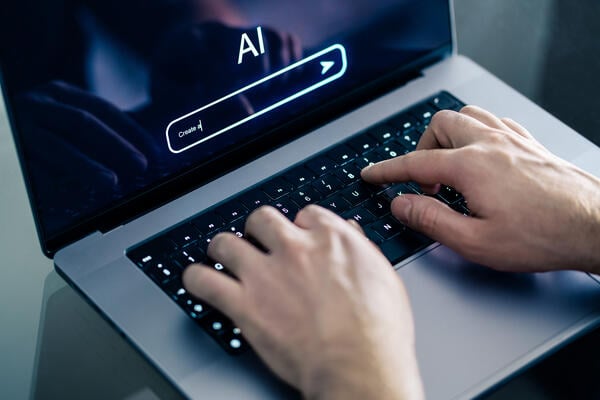#digital-literacy
#digital-literacy
[ follow ]
#social-media #online-safety #artificial-intelligence #parenting #digital-equity #broadband-access #education
fromArs Technica
2 weeks agoTikTok users "absolutely justified" for fearing MAGA makeover, experts say
She told Ars that "users' fears are absolutely justified" and explained why the "bugs" explanation is "insufficient." "Even if these are technical glitches, the pattern of what's being suppressed reveals something significant," Literat told Ars. "When your 'bug' consistently affects anti-Trump content, Epstein references, and anti-ICE videos, you're looking at either spectacular coincidence or systems that have been designed-whether intentionally or through embedded biases-to flag and suppress specific political content."
US politics
fromFast Company
3 weeks agoHow to build your deep reading and critical thinking skills to better resist misinformation
The average American checks their phone over 140 times a day, clocking an average of 4.5 hours of daily use, with 57% of people admitting they're "addicted" to their phone. Tech companies, influencers, and other content creators compete for all that attention, which has incentivized the rise of misinformation. Considering this challenging information landscape, strong critical reading skills are as relevant and necessary as they've ever been.
Education
fromPsychology Today
2 months agoDigital Literacy Starts at Home
Children and teens are surrounded by technology, and it is imperative to set them up for success. Developing digital literacy among youth is a critical part of child-rearing today. Digital literacy, according to the United Nations Educational, Scientific, and Cultural Organization (UNESCO; 2018) is "the ability to access, manage, understand, integrate, communicate, evaluate and create information safely and appropriately through digital technologies." There are many areas of competence within digital literacy, one of which is safety (UNESCO, 2018).
Digital life
fromBusiness Matters
3 months agoWomen in tech urged to trust their instincts and lead change
Women working in the technology sector have been urged to trust their instincts, back their ideas, and challenge barriers to change, as industry leaders gathered at the first Inspiring Women in Technology event in Birmingham. The event, hosted by the School of Coding & AI (SOC), brought together innovators and senior professionals from across the Midlands to discuss how women can turn the challenges of AI into opportunities for leadership and impact.
Women in technology
fromBrooklyn Paper
3 months agoYour Vote 2025: District 47: Contenders talk education * Brooklyn Paper
My district is home to some of the most active senior centers in the city, as well as beautiful libraries. Unfortunately, many of the institutions are under threat from federal funding cuts. In order for these havens of lifelong learning to continue to provide the highest quality services possible we need to ensure that funding can be replaced by the city.
Brooklyn
#ai-safety
Artificial intelligence
fromBusiness Insider
9 months agoI'm a mom who works in tech, and AI scares me. I taught my daughter these simple guidelines to spot fake content.
Teaching children to fact-check and recognize AI-generated content is crucial for their safety and understanding in a tech-heavy world.
fromSocial Media Today
3 months agoGoogle Offers AI Education in New 'Skills' Platform
Google Skills is a new home for building skills in AI and more to provide new tools for the entire workforce. Whether you're a student just getting started, an experienced developer looking to certify your knowledge, an organizational leader trying to use AI in your business or anything in between, you can learn and prove your skills on Google's new learning platform.
Artificial intelligence
Education
fromIrish Independent
4 months ago'There's savage kindness among this group of teenagers' - Cork secondary school staff on taking part in new TV series
A Rebel Education portrays Irish students' modern challenges, emphasizing social media's impact, digital literacy, mental health, resilience, and a diverse school community.
fromwww.theguardian.com
4 months agoBritain should raise the digital age of consent | Letters
From disrupted sleep and shorter attention spans to reduced social skills and exposure to radicalised and extreme views, children and young people are being exploited by big tech executives who are making billions as a result. Parents and teachers see the damage being done on a daily basis. Students are arriving at school exhausted, anxious and already overwhelmed by what they've seen on social media.
UK politics
Media industry
fromNon Profit News | Nonprofit Quarterly
4 months agoImmigrant Media Is a Community Building Project - Non Profit News | Nonprofit Quarterly
Indonesian Lantern transformed from a magazine into a community hub providing digital-literacy workshops and voter-engagement support for Indonesian American immigrants.
fromScary Mommy
4 months agoThis Mom Started "Social Media School" With Her Tween
So when somebody sees the dance video, what they're going to do is they're going to see, and then it's going to go through all of these sensations: the way that they see, hear, feel, touch, smell, all of that. And it's going to go through all of their own past experiences. So everything that they've ever been told about dancing and themselves, it'll go through what they believe about the world, if they think dancing is good or bad or silly or stupid.
Mental health
Privacy technologies
fromAdExchanger
5 months agoFTC Commissioner Mark Meador: 'No Human Society Can Long Survive Without Consumer Trust' | AdExchanger
Technology and AI chatbots are shaping US children’s behavior and safety, prompting FTC probes into major platforms’ design, data practices, age restrictions, and child protections.
fromSocial Media Today
5 months agoSnapchat Launches 'The Keys' Online Safety Education Program
Snapchat has launched a new digital literacy program, called "The Keys," which aims to highlight the dangers of online interaction for young users, and better equip them with knowledge on how to protect themselves, and avoid problems in social apps. "Developed in collaboration with Common Sense Media, informed by safety experts, and reviewed by members of Snap's teen Council for Digital Well-Being, this program aims to educate teens about four key risks they may face online - bullying, illicit drug activity, nude and intimate images, and sextortion - and teaches platform-specific skills for helping to stay safe on Snapchat.
Digital life
Mental health
fromIndependent
5 months agoAre smartphones really a big threat to teens? Irish expert Dr Nicola Fox Hamilton says no - and that banning them would do more harm than good
Banning technology for children can worsen their mental health; parents should use supportive, education-focused strategies instead of outright prohibitions.
fromIT Pro
5 months agoWhat does computer literacy mean in 2025?
Fifteen years ago, being 'computer literate' meant you could navigate Windows or macOS with ease, troubleshoot a printer jam, and perhaps install new software without calling tech support. In 2025, that definition feels outdated. Today's digital workplace runs on applications, mobile devices, and increasingly, AI-powered platforms that handle much of the complexity behind the scenes. How to effectively and efficiently use the array of technologies businesses now employ, has become critical.
Artificial intelligence
fromwww.eastbaytimes.com
6 months agoLibrary Lines: Tech Exchange to provide help at Contra Costa branches
The Contra Costa County Library is partnering with Tech Exchange to offer drop-in tech support at three branches, beginning July 29. Tech Exchange will assist patrons with various technology needs, including Internet service sign-ups and navigating library computers.
Digital life
fromInside Higher Ed | Higher Education News, Events and Jobs
7 months agoThe Key Podcast: Creating a Culture Where Innovation Thrives
Getting faculty to experiment with new technology or pedagogy requires a supportive campus culture, group problem-solving, and empowerment to encourage innovation.
Higher education
fromBKReader
7 months agoBrooklyn Library's Teen Techies Marks 20 Years of Youth Empowerment
"When Teen Techies started in 2005, we could not have imagined the giant leaps technology would take: the proliferation of social media, smart phones, cloud computing, AI and so much more," said Linda E. Johnson, president and chief executive officer of Brooklyn Public Library.
Brooklyn
fromBrooklyn Paper
9 months agoBrooklyn Public Library launches Digital Discovery Day to boost tech skills at Bed-Stuy branch * Brooklyn Paper
The Brooklyn Public Library's Digital Discovery Day aims to connect residents with technology, offering resources for all ages and levels of tech comfort.
Brooklyn
fromwww.mediaite.com
9 months agoRick Santorum Claps Back at Hillary Clinton Over K-12 Digital Literacy' Plans: Speech-Stifling Gov't Control of Information'
As we have witnessed over the past four years, government control of information resulted into hyper-partisan education for children and the stifling of viewpoints online that do not comport with leftist ideology.
Left-wing politics
Digital life
fromwww.theguardian.com
9 months agoGreyscale and prune your algorithm: digital nutritionist' offers advice on cutting down screen time
Switching your phone to greyscale can improve awareness of digital consumption.
Algorithmic resistance helps consumers take control over content seen online.
[ Load more ]











